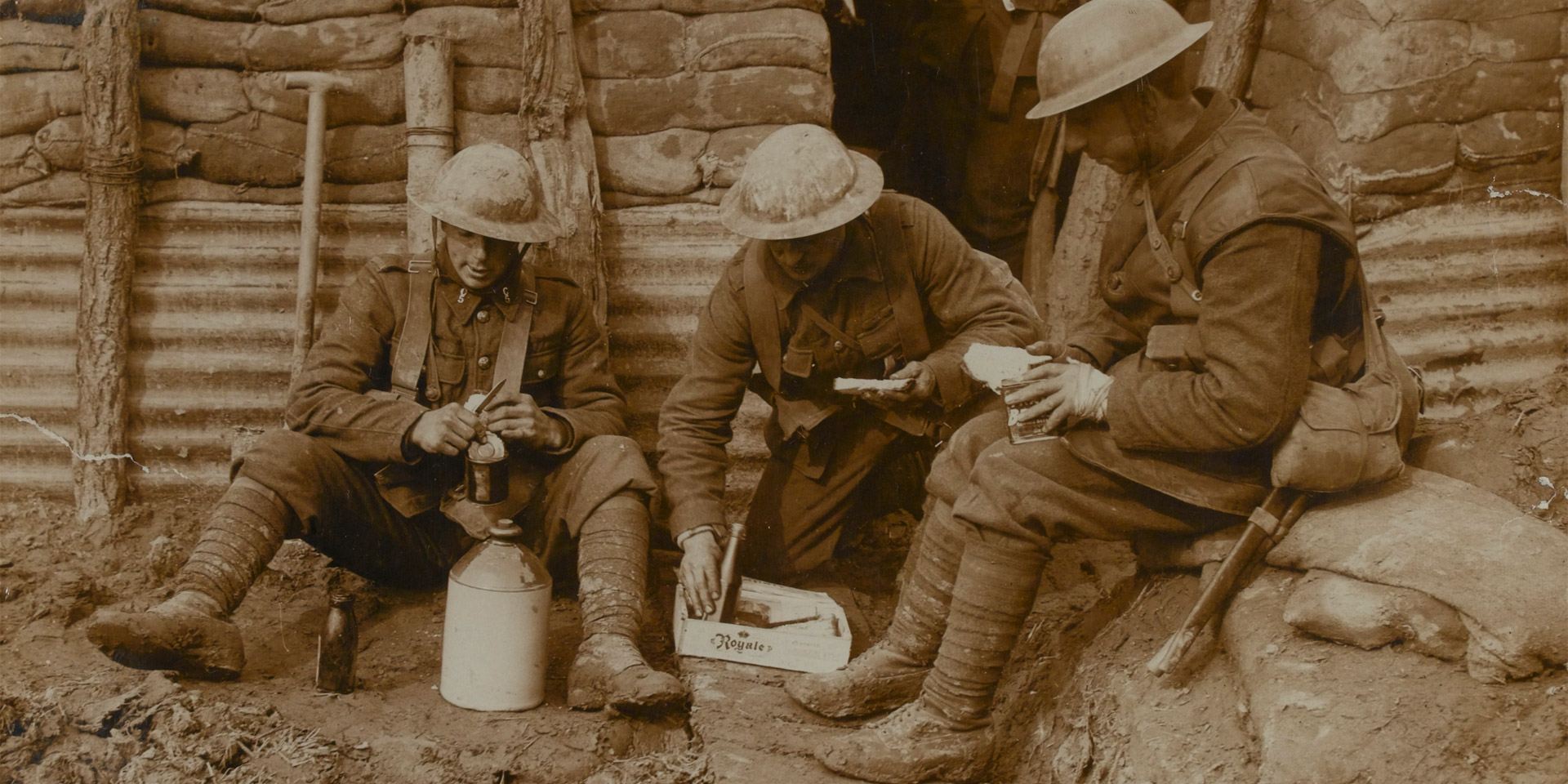Introduction
Food in the trenches during WWI was often of poor quality. Soldiers faced significant challenges in obtaining sufficient and nutritious food, which was crucial for maintaining their energy and morale. Here I will explore the types of food provided to soldiers, the challenges they faced, and how they coped with these difficulties.
Rations and Provision
The standard rations for soldiers in the trenches included items like canned meat, biscuits, and dried vegetables. The food was often preserved in cans to withstand the harsh conditions of the front lines, but this also meant it was often bland and unappetizing. The quality of the rations could vary depending on the supply lines and logistics.
In addition to the basic rations, soldiers occasionally received supplementary food parcels from home. These parcels could include items such as chocolate, dried fruit, and other treats, which were highly valued by the troops and provided a welcome change from the low standards they were used to.

Challenges of Food Supply
One of the major challenges in providing food to soldiers in the trenches was the difficulty of transporting supplies to the front lines. The logistics of getting food to soldiers in a war zone, combined with unpredictable weather conditions, made it difficult to ensure a consistent and reliable supply.
The harsh conditions of trench life also contributed to problems with food storage and preparation. Rats and other pests often contaminated food supplies, and the lack of proper facilities for cooking and refrigeration further compounded the issues. As a result, soldiers frequently had to deal with spoiled or substandard food.
Impact on Soldiers
The inadequate and often poor-quality food had a significant impact on soldiers' health and morale. Poor nutrition could lead to physical ailments such as malnutrition and illness, which in turn affected soldiers' ability to perform their duties. The psychological effect of having to endure unpleasant and insufficient food also contributed to the overall hardship of trench life.
Despite these challenges, soldiers adapted to the conditions as best as they could. They made the most of their limited food supplies and found ways to improve their diet with the occasional parcel from home or by making use of local resources when possible.
Conclusion
Food in the trenches was a crucial aspect of soldiers' daily lives, affecting both their physical health and morale. The difficulties in providing adequate and nutritious food underscored the broader challenges of trench warfare. Understanding the conditions under which soldiers lived and the food they relied on provides insight into the hardships they faced and their resilience in enduring such conditions.
